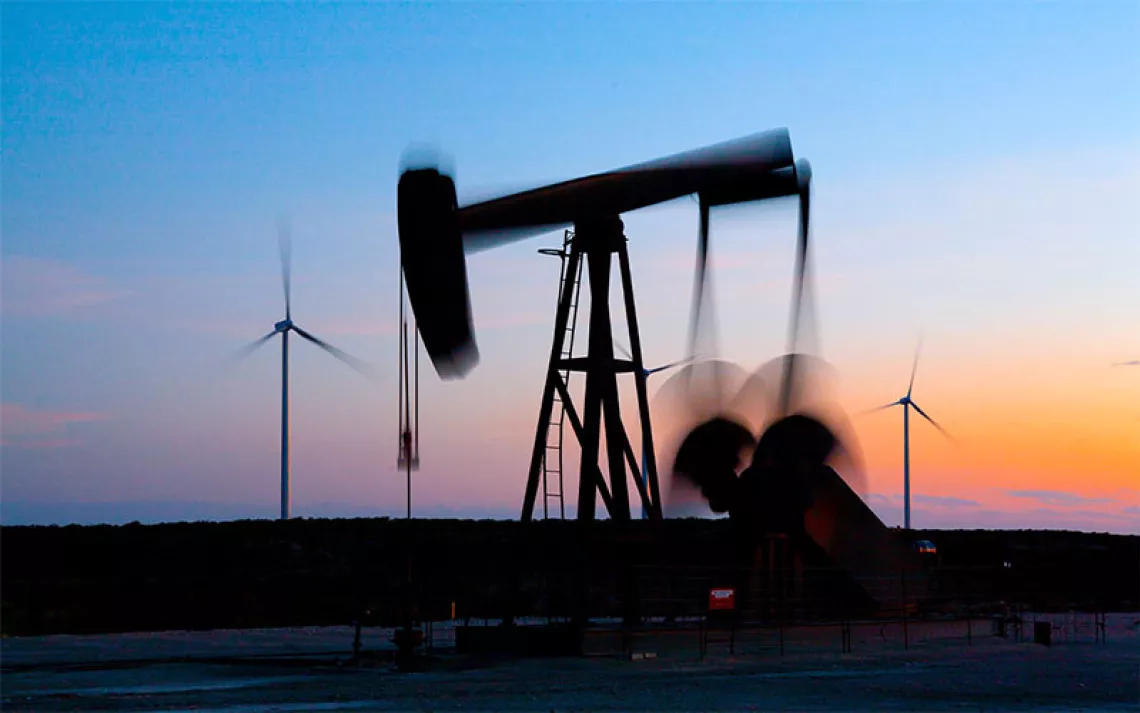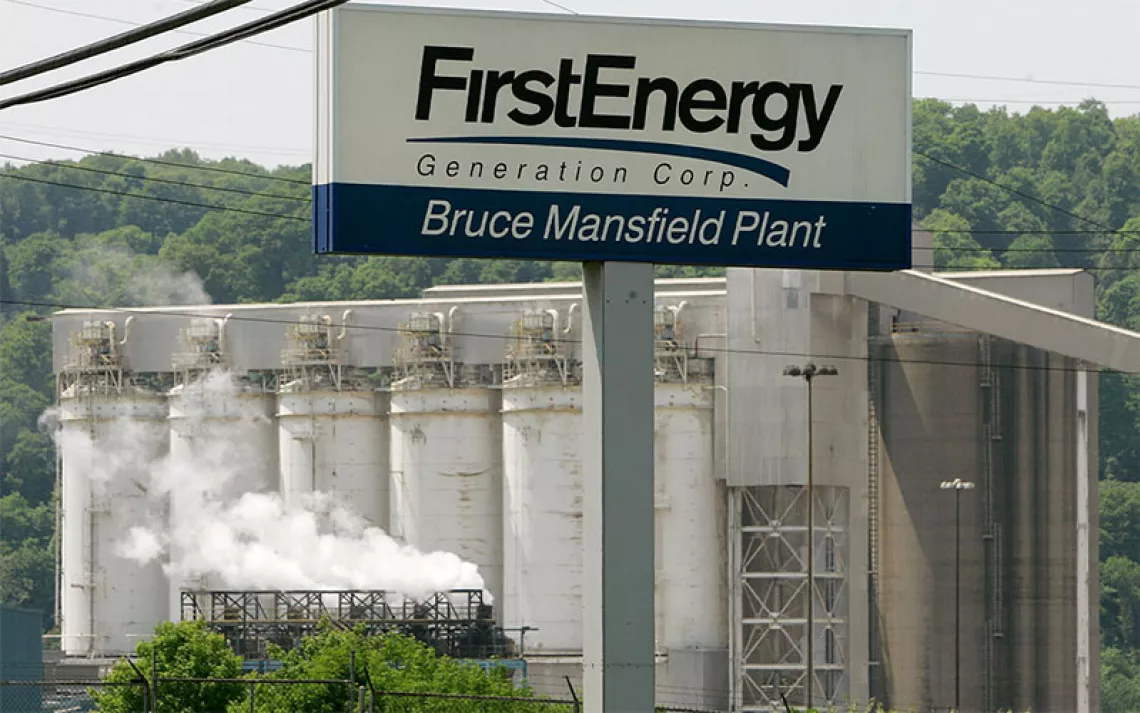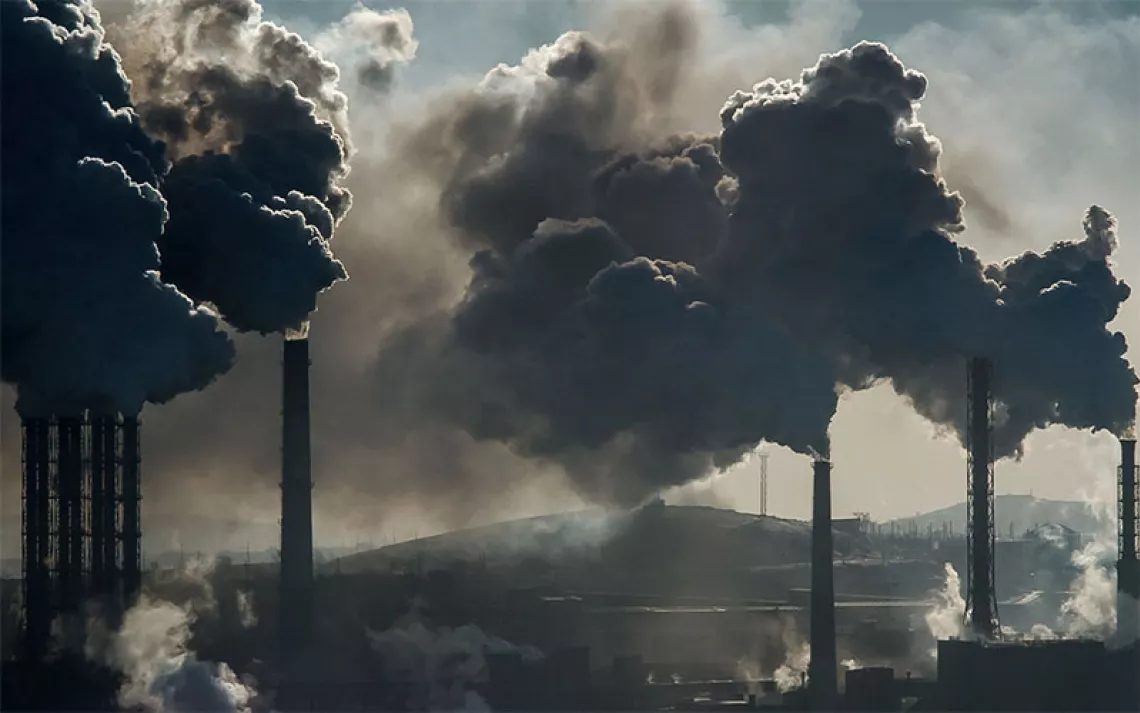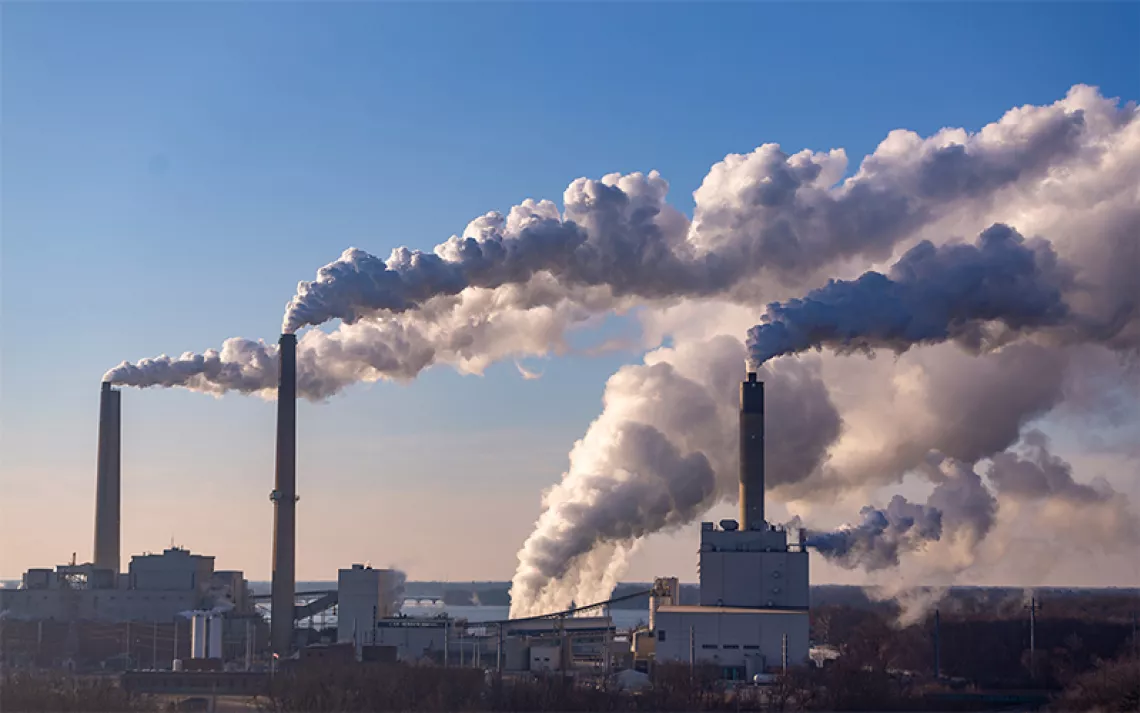Rick Perry Thinks *You’re* Stupid
The Trump administration is looking to prop up coal and nukes under the guise of “national security”

Photo by LM Otero/AP
Do you believe that there is no evidence of Russian interference in the 2016 presidential election? Are you convinced that millions of noncitizens are voting illegally, and that the ability to vote needs to be severely restricted as a result? Well if so, maybe you’ll believe this one, too: Preserving dirty coal-fired power plants is essential to our national security.
That’s the message that Department of Energy head and former Texas governor Rick Perry is trying to sell. It would seem a daunting task. Even though the Trump administration declared an end to “the war on coal” and EPA brass assured industry insiders that they’re there for them, the coal plants keep closing. The latest is North Carolina’s 116-megawatt Edgecombe Genco, which announced on May 8 that it will close in 2020, making it the 252nd coal plant to be retired since 2010. The reason is Econ 1-A: Wind, solar, and natural gas are all cheaper than coal.
But what if coal were discovered to have some attribute that made it uniquely valuable—worthy, perhaps, of government subsidy? Perry first raised the notion in an April 14 memorandum questioning the reliability of the U.S. electrical grid:
Baseload power is necessary to a well-functioning electric grid. We are blessed as a nation to have an abundance of domestic energy resources, such as coal, natural gas, nuclear, and hydroelectric, all of which provide affordable baseload power and contribute to a stable, reliable, and resilient grid. Over the last few years, however, grid experts have expressed concerns about the erosion of critical baseload resources.
“Baseload power” is energy jargon for sources that can be relied upon to satisfy a system's minimum needs. In the early days of renewable energy there were, in fact, concerns about how variable sources like wind and solar might be integrated into the electric grid. But today, with large amounts of renewables actually in play, those fears have been largely put to rest. PJM Interconnection, which manages electricity markets in the mid-Atlantic region, addressed the issue in a March study that concluded that adding substantial amounts of wind to its system actually enhances grid reliability. On February 13, wind provided more than half of all power to a 14-state area in the central United States, with no untoward reliability issues. And a 2012 study by the National Renewable Energy Laboratory found that “Renewable electricity generation from technologies that are commercially available today, in combination with a more flexible electric system, is more than adequate to supply 80 percent of total U.S. electricity generation in 2050.”
But the Trump administration appears poised to try to convince the nation otherwise. In an on-stage interview at the April 25 Bloomberg New Energy Finance Summit, Perry suggested that the growth of renewable energy was making the nation’s electric grid unreliable, thus creating a national security concern. “There’s a discussion, some of it very classified, that will be occurring as we go further,” he said, “to protect the security interests of America.”
His concerns were echoed by EPA chief Scott Pruitt in a May 3 interview on Fox Business’s Varney & Co.:
Utility companies across this country need fuel diversity. You need solid hydrocarbons on-site that you can store, so when peak demand rises, you’ve got solid hydrocarbons to draw on. . . . What would happen if we had an attack on our infrastructure when you’ve diverted to natural gas almost exclusively and you don’t have coal there as a safeguard to preserve the grid?
The suggestion is that if a gas pipeline were blown up, and there’s a concurrent eclipse of the sun and the wind isn’t blowing, then you’d really wish for a big pile of coal to burn. Here’s Perry again at the Bloomberg event:
Are there issues that are so important to the national security of this country that the federal government can intervene on the regulatory side? I’ll suggest there are. Being able to have and make sure we’re able to maintain a baseload on our grid is of national security.
Perry goes on to suggest that the federal government may have to pre-empt state laws such as the renewable portfolio standards that mandate the incorporation of increasing amounts of renewable energy into state supplies. (California and New York, for example, call for 50 percent renewables by 2030.) Perry also proposes that his study look at whether energy markets “are adequately compensating attributes such as on-site fuel supply and other factors that strengthen grid resilience.”
Coal plant operators can already hear the ca-ching! of future subsidies. Energy Wire reports that Chuck Jones, CEO of FirstEnergy Corp., an Ohio coal and nuclear operator on the edge of bankruptcy, traveled to Washington to meet with Trump officials and is already developing a pitch for funds to keep its plants open. “If their intention is to keep these fuel-secure baseload assets from closing,” Jones said in an analyst call, “then they’re going to have to do something to make sure there’s a financial incentive not to close.”
The study ordered by Perry is on a very fast track and is expected to be completed by mid-June. Its likely findings are not much in doubt, given that Perry tasked the study to his chief of staff, Brian McCormack, who earlier worked for the Edison Electric Institute and led its attack on rooftop solar power. Assisting him will be Travis Fisher, who previously worked with the Koch brother–affiliated Institute for Energy Research, a longtime opponent of renewable energy.
Perry’s study has alarmed supporters of clean energy in the Senate, seven of whom—including Maria Cantwell, Al Franken, and Debbie Stabenow—wrote a letter of protest:
The study, as you have framed it, appears to be intended to blame wind and solar power for the financial difficulties facing coal and nuclear electric generators and to suggest that renewable resources threaten the reliability of the grid. . . . Mr. Secretary, the notion that a 60-day review conducted by ideologues associated with a Koch brothers–affiliated think tank should supplant research and analysis conducted by the world’s foremost scientists and engineers would be a grave disservice to American taxpayers. . . . We fear that the Department is instead embarking on an initiative aimed at bolstering the views of a group of special interests seeking to resurrect electric generation technologies that can no longer successfully compete on their own. You should not allow this to happen.
Other things being equal, attempting to stop the renewables revolution and bring back coal might seem like an absurd venture. But there’s a lot going on in Donald Trump’s America that would have seemed absurd just a year ago. We should not allow this to happen.
This post has been corrected.
 The Magazine of The Sierra Club
The Magazine of The Sierra Club



